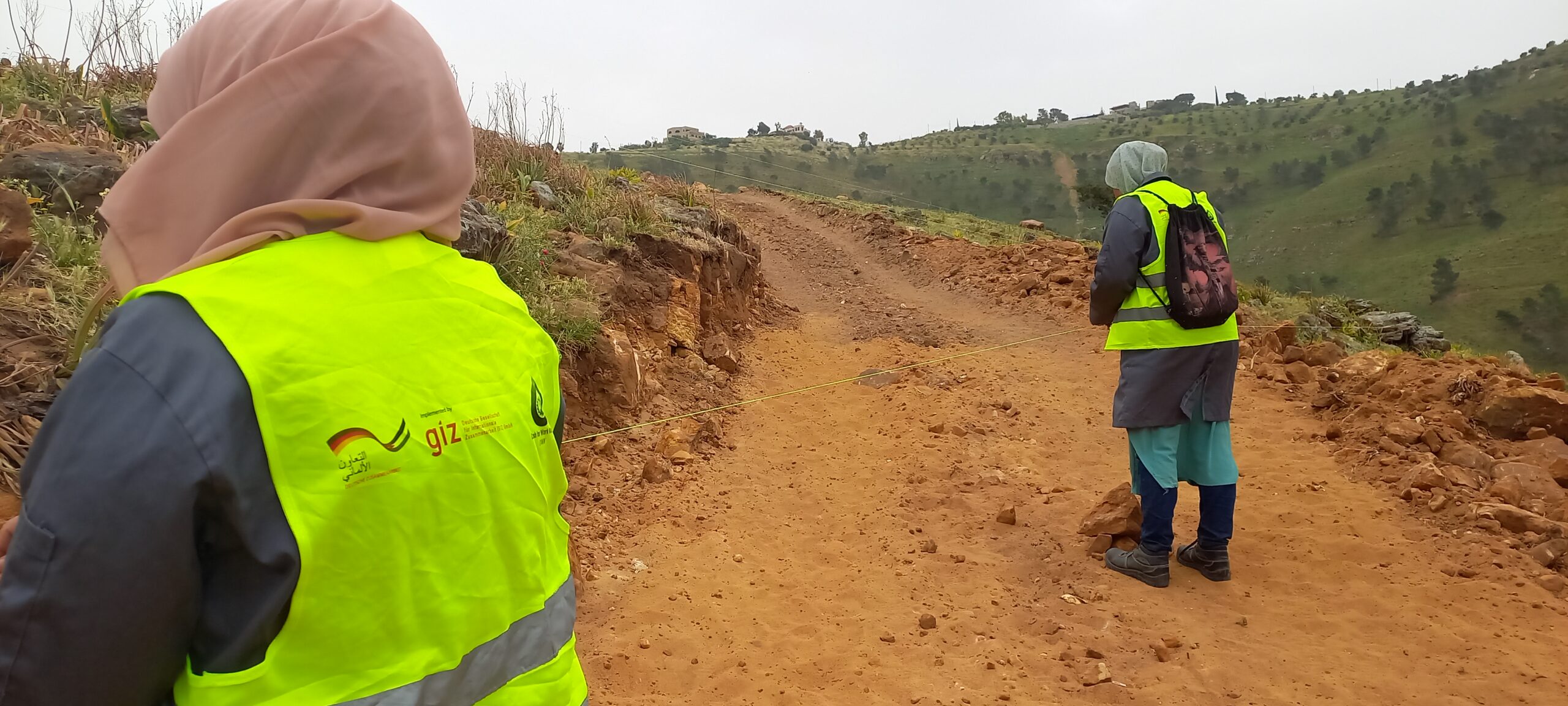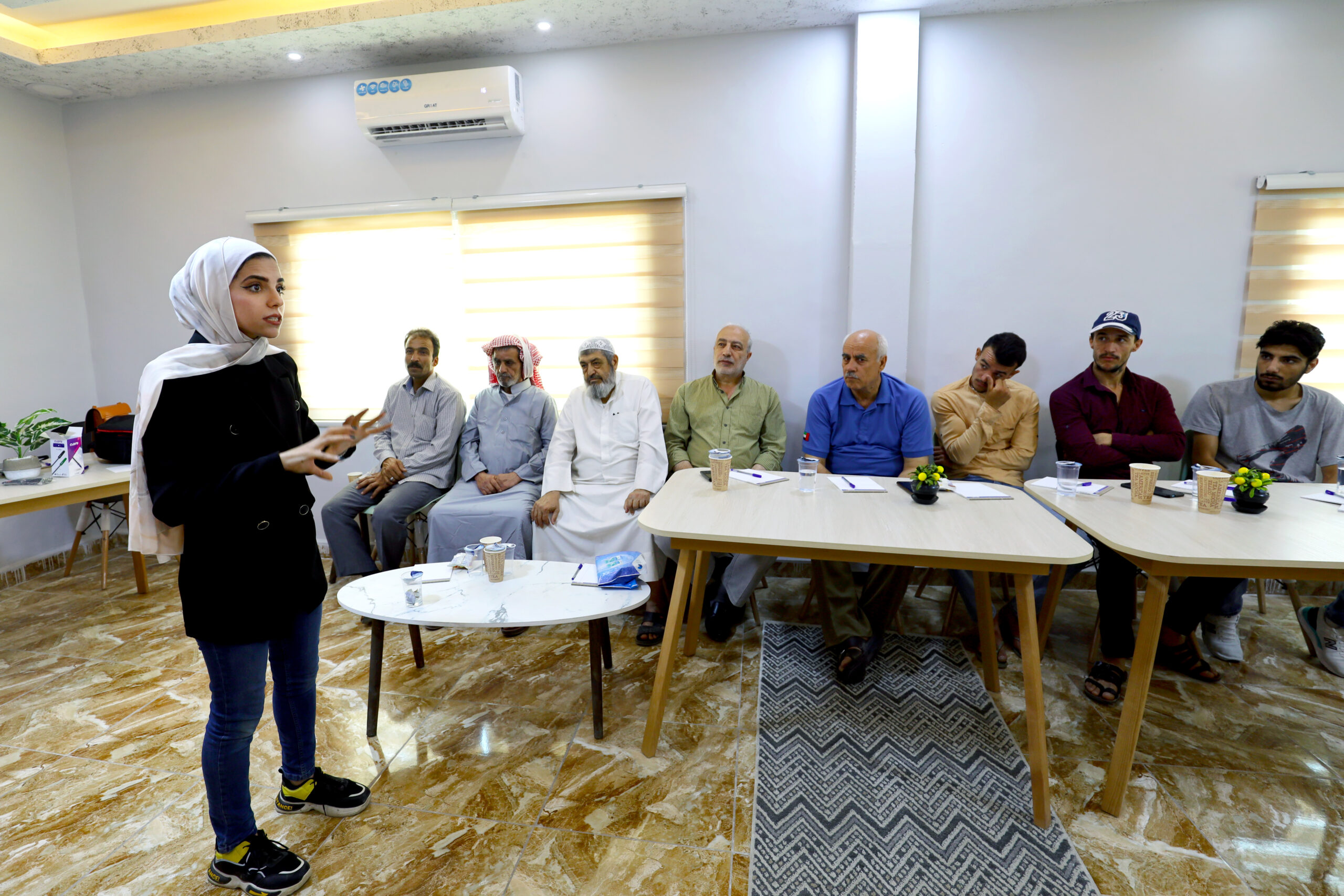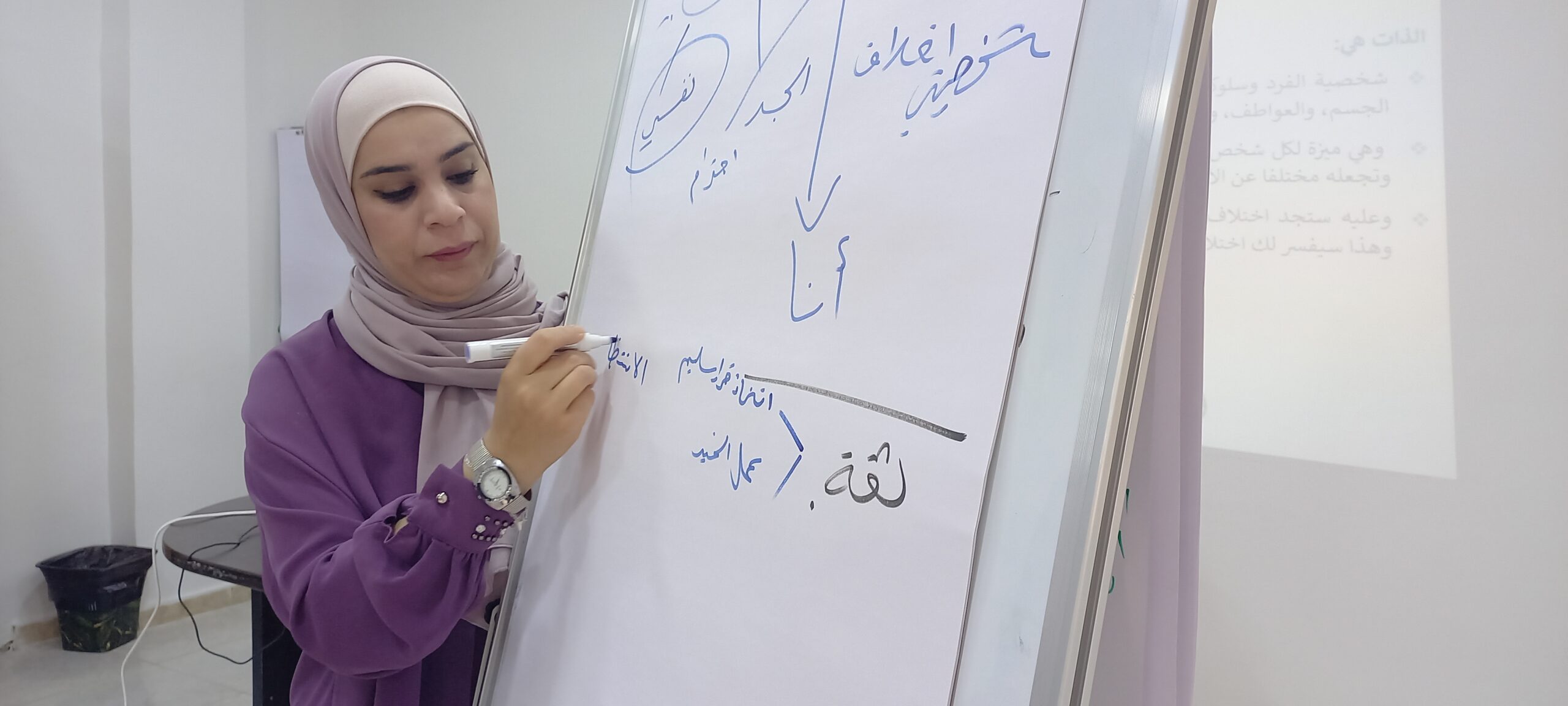The King Talal Dam is essential for strengthening agriculture and livelihoods in the northern region of Jordan along the Zarqa River. With farmers and communities relying on the dam, Blumont, with the support of men and women from the community, is working to preserve and rehabilitate sections of the dam in the Zarqa region. Their efforts ensure that water flows to irrigate fields without causing floods and destroying surrounding land.
The PROTEKT program, funded by the German Federal Ministry for Economic Cooperation and Development (BMZ) and implemented by Deutsche Gesellschaft für Internationale Zusammenarbeit (GIZ) GmbH in partnership with Blumont, aims to preserve the dam while engaging local Jordanians and Syrian refugees through cash-for-work opportunities. Program participants alongside Blumont engineers and construction workers are rehabilitating this critical piece of infrastructure through the construction of water control structures, such as check dams and gabion walls. The program is also raising community awareness about water conservation and erosion.
Women in Jordan are engaged at all levels of the cash-for-work program and make up 20 percent of participants, taking on roles in management, training, and tree planting.

Female workers prepare the area around King Talal Dam for tree-planting
“I am a city girl and this program taught me how to work in the agriculture sector and gain new skills and experience in growing different types of vegetables,” said Salwa, a Jordanian woman who is on the tree-planting team that is restoring the environment around the waterways. Salwa, like other women participating in the program, did not originally work in agriculture, but saw the PROTEKT program as an opportunity to expand her skills and pursue a new livelihood.
Salwa is the breadwinner of her family as her husband is unable to work due to illness. The cash-for-work opportunity helped her cover her husband’s medical bills in addition to their daily needs.
Similarly, Anwar, a Jordanian woman who led community awareness sessions with the program, was able to pay her bills, including rent and the cost of food during Ramadan.
With a degree in civil engineering, Anwar had long dreamed of using her skills to address water scarcity issues in Jordan. “I am very passionate about the water and environmental issues in our area, especially the King Talal Dam in my hometown of Jerash,” said Anwar. “Through awareness sessions, we try to encourage the community to play their part in protecting this important resource.”

Anwar led an awareness-raising session with a group of local farmers.
Anwar’s experience through the program opened new career opportunities for her. She was hired for a position with the Jordan River Foundation shortly after completing her work with PROTEKT. With her new role, she is not only building a secure livelihood but is also building her self-confidence.
“As a woman working in a conservative society, it was hard for me at first to stand in front of older men and train them. They underestimated me because of my age and gender,” said Anwar. “Once they saw that the information I shared was valuable, they realized they can learn from me and started to be more accepting.”
Maha, a Jordanian woman, had a similar experience of overcoming gender norms as part of the community awareness team.
“My family and community were the biggest challenges at first, but when I showed them that I can work, accomplish new things, and support myself and my family financially, they became my source of inspiration to continue working,” said Maha.

Maha developed her self-confidence and public speaking skills after conducting awareness sessions with community members
With newfound confidence in themselves and their skills, these women are breaking social barriers and advocating for gender equity in the workforce. They are encouraging other women in their communities to challenge the status quo by seeking employment in all sectors.
“When women see other women working in non-traditional fields and refusing to feel ashamed, they do the same,” said Maha.
“There were pictures before and after our work and when we saw the pictures, I felt proud of what we had achieved. It was a message to us that we can achieve anything,” said Salwa. “Never say, ‘I don’t know,’ or ‘I can’t.’ Just take the chance and try.”



